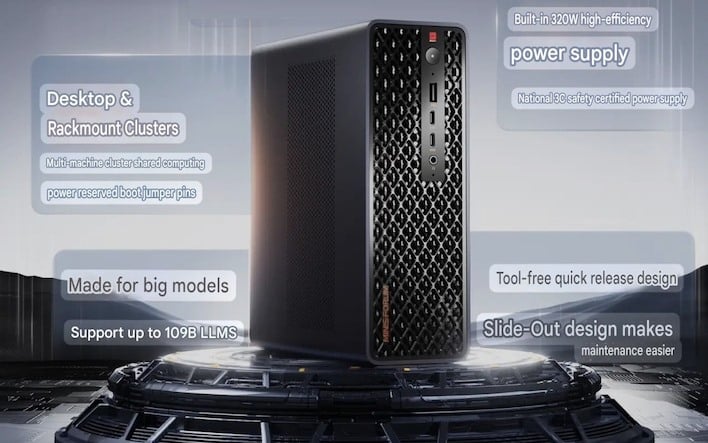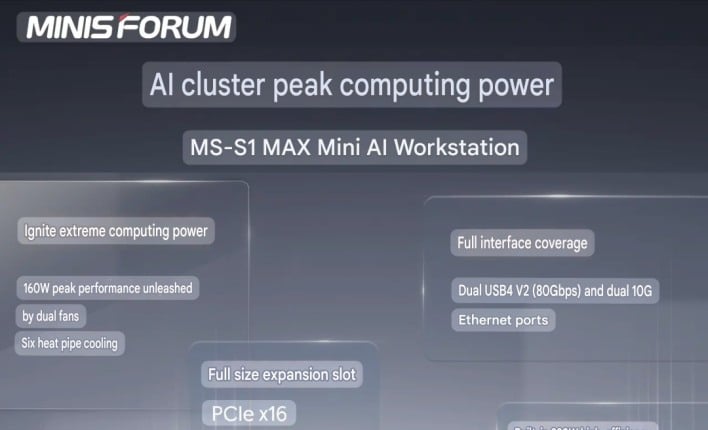Minisforum Readies A Ryzen AI Max+ Strix Halo Pint-Sized Powerhouse SFF PC
Codenamed Strix Halo, the Ryzen AI Max parts are fascinating because they combine desktop-class Zen 5 CPU cores with a massive, discrete-class integrated GPU, and uniquely, they have a double-wide 256-bit memory bus to feed all those cores. Minisforum is hardly the only company making mini- and micro-desktops based on this new SoC, but it might be the company making the coolest one because the MS-S1 MAX supports a power limit of 160W—double that of the ASUS ROG Flow z13, and 33% higher than any other computer we've seen with this chip.

A lot of that is likely down to AMD's own guidance, as the company says Strix Halo is good for operation between 45 and 120W, but there's no reason a plucky system integrator couldn't stretch those values. AMD's firmware has been picked apart thoroughly by enthusiasts, and there's nobody more enthusiastic than a guy who wants to sell a faster system than the competition.
The extended power limit should improve performance in both CPU and GPU-bound tasks, as 120W is realistically not enough for even the 16 Zen 5 CPU cores, to say nothing of the 40-CU integrated GPU that could easily suck down 120W by itself.

The MS-S1 MAX has more going for it than just an extra 40 watts, though. It includes not just one, but two 10-Gigabit Ethernet ports, a full-sized PCI Express 5.0 Expansion slot, and a 320W power supply. This is also one of the first devices we've seen with support for the bleeding-edge USB4 V2 standard that matches Thunderbolt 5's 80-Gbps transfer rate (although that standard also supports 120Gbps). The chassis is fully toolless, and of course, Minisforum is going to offer the machine with up to 128GB of memory, making it prime for AI compute.
Of course, Minisforum's WeChat post gives no impression of how expensive this machine will be, but you can assume it won't be cheap. Less capable systems from other vendors have started at about $2,000 and gone up from there. If that's anything to go on, we'd be shocked if this system comes in under $2,500 to $3,000.


